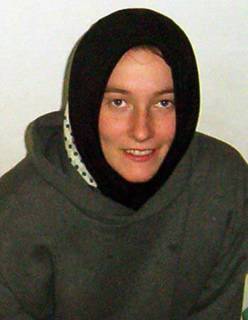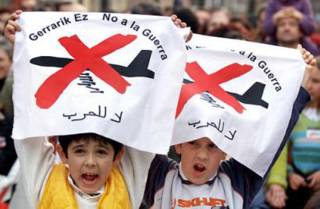Today at History Channel:
1776 De Anza founds San Francisco
Juan Bautista de Anza, one of the great western pathfinders of the 18th century, arrives at the future site of San Francisco with 247 colonists.
Though little known among Americans because of his Basque origins, Anza's accomplishments as a western trailblazer merit comparison with those of Lewis and Clark, John Frémont, and Kit Carson. Born and raised in Mexico, Anza joined the army when he was 17 and became a captain seven years later. He excelled as a military leader, displaying tactical genius in numerous battles with the Apache Indians.
In 1772, Anza made his first major exploratory mission, leading an arduous but successful expedition northwest to the Pacific Coast. Anza's expedition established the first successful overland connections between the Mexican State of Sonora and northern California. Impressed by this accomplishment, the Mexican viceroy commissioned Anza to return to California and establish a permanent settlement along the Pacific Coast at San Francisco Bay.
Although seagoing Basque explorers had sailed along the northern California coast during the 16th and 17th centuries, the amazing natural harbor of San Francisco Bay was only discovered in 1769. The Spanish crown immediately recognized the strategic importance of the bay, though it would be seven years before they finally dispatched Anza to establish a claim there.
Anza and 247 colonists arrived at the future site of San Francisco on this day in 1776. Anza established a presidio, or military fort, on the tip of the San Francisco peninsula. Six months later, a Spanish Franciscan priest founded a mission near the presidio that he named in honor of St. Francis of Assisi-in Spanish, San Francisco de Asiacutes.
The most northerly outpost of the Spanish Empire in America, San Francisco remained an isolated and quiet settlement for more than half a century after Anza founded the first settlement. It was not until the 1830s that an expansionist United States began to realize the commercial potential of the magnificent natural harbor. In the wake of the Mexican War, the U.S. took possession of California in 1848, though San Francisco was still only a small town of 900 at that time. With the discovery of gold that year at Sutter's Fort, however, San Francisco boomed. By 1852, San Francisco was home to more than 36,000 people.
The founder of San Francisco did not live to see it flourish. After establishing the San Francisco presidio, Anza returned to Mexico. In 1777, he was appointed governor of New Mexico, where he eventually negotiated a critical peace treaty with Commanche Indians, who agreed to join the Spanish in making war on the Apache. In declining health, Anza retired as governor in 1786 and returned to Sonora. He died two years later, still only in his early 50s and remembered as one of greatest Basque trailblazers and soldiers in New Spain's northern borderlands.
.... ... .



